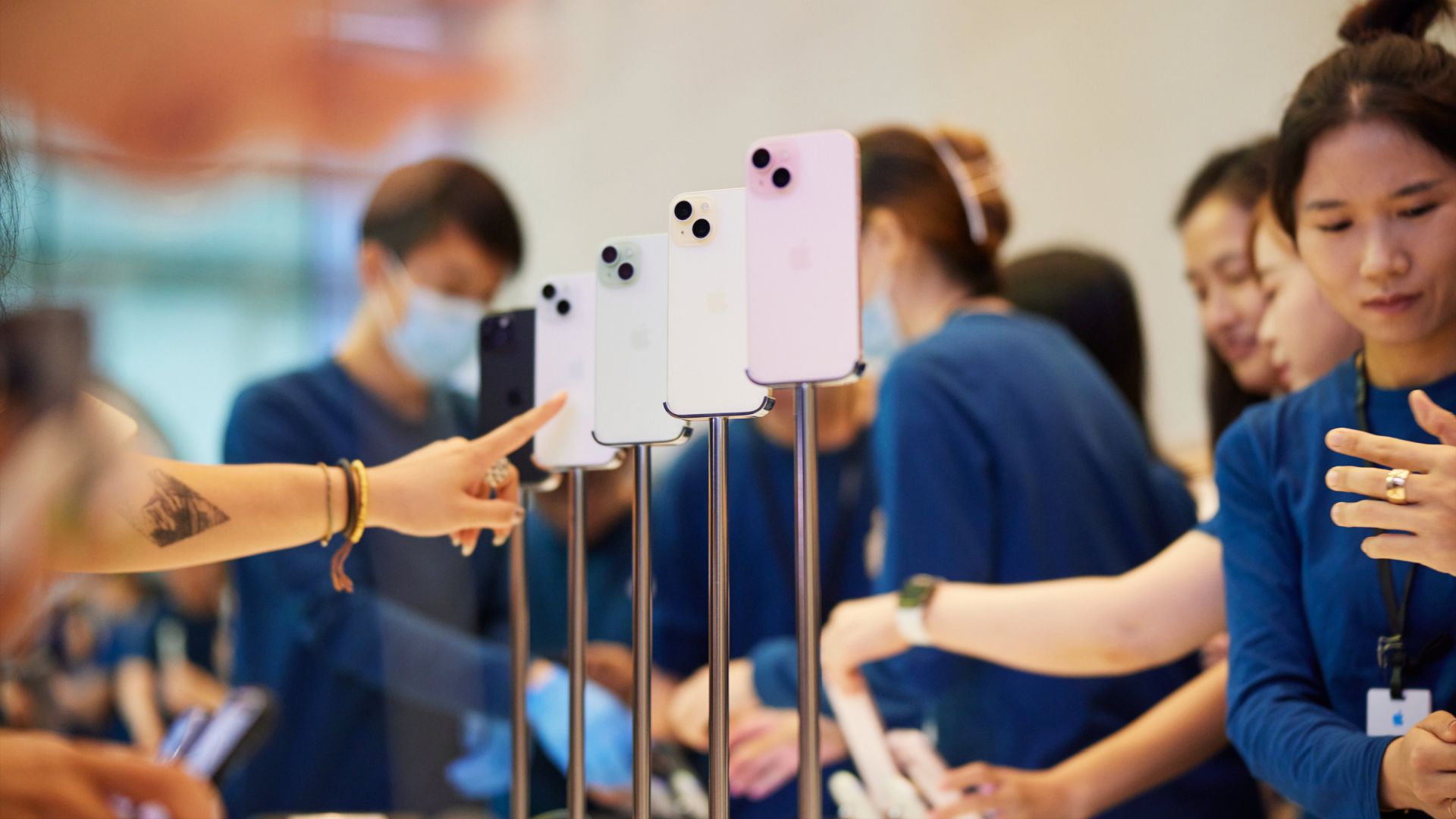Apple wants to replace 50% of its iPhone factory workforce with robots

As Apple gets ready to launch the iPhone 16 and iPhone 16 Pro, a new report has Apple keen to change the way that it produces its biggest seller moving forward.
According to that report, Apple has tasked its supply chain partners with reducing the number of people involved in building the iPhone. The aim, we're told, is to reduce the reliance on people following a troublesome few years that saw Foxconn's Chinese factories closed as a result of COVID-19 lockdowns and riots over pay.
Now, it's thought that Apple has greenlit projects that would see new AI and automation used to reduce the need for people to be involved in the final assembly and testing of iPhones, potentially allowing companies like Foxconn to move more manufacturing capacity beyond China's borders as a result.
Down on China
Apple's intent to move production away from China is nothing new, but the removal of skilled workers from the iPhone production line could open the door to factories opening in less-skilled parts of the world. Beyond that, automation would simply allow Apple to more easily ensure production continues and, potentially, at a faster pace, even during COVID-19-like global events.
The Information reports that, following Foxconn riots, Apple’s senior vice president of operations, Sabih Khan, told managers to find a way to reduce iPhone assembly staff by as much as 50%.
"To accomplish that, Apple began greenlighting automation projects for its assembly lines that it had previously mothballed due to high up-front costs," the report explains, citing unnamed former Apple employees. "The efforts resulted in a significant amount of automation handling the final assembly for last year’s iPhone 15, according to three people involved in its manufacturing."
Steps taken include the purchase of DarwinAI, a company that "uses computer vision to inspect components like printed circuit boards for defects." Apple also reportedly bought Drishti, a Californian company that allows the analysis of video footage of assembly lines and then identifies potential performance improvements.
iMore offers spot-on advice and guidance from our team of experts, with decades of Apple device experience to lean on. Learn more with iMore!
For iPhone buyers, the moves could allow Apple to produce more handsets more quickly, potentially making it easier to buy the iPhone they want, when they want to buy it.
iPhone 15 Pro | $999 at Apple
The iPhone 15 Pro is the best iPhone money can buy right now thanks to its gorgeous titanium finish and blazing-fast A17 Pro chip.
More from iMore

Oliver Haslam has written about Apple and the wider technology business for more than a decade with bylines on How-To Geek, PC Mag, iDownloadBlog, and many more. He has also been published in print for Macworld, including cover stories. At iMore, Oliver is involved in daily news coverage and, not being short of opinions, has been known to 'explain' those thoughts in more detail, too. Having grown up using PCs and spending far too much money on graphics card and flashy RAM, Oliver switched to the Mac with a G5 iMac and hasn't looked back. Since then he's seen the growth of the smartphone world, backed by iPhone, and new product categories come and go. Current expertise includes iOS, macOS, streaming services, and pretty much anything that has a battery or plugs into a wall. Oliver also covers mobile gaming for iMore, with Apple Arcade a particular focus. He's been gaming since the Atari 2600 days and still struggles to comprehend the fact he can play console quality titles on his pocket computer.

